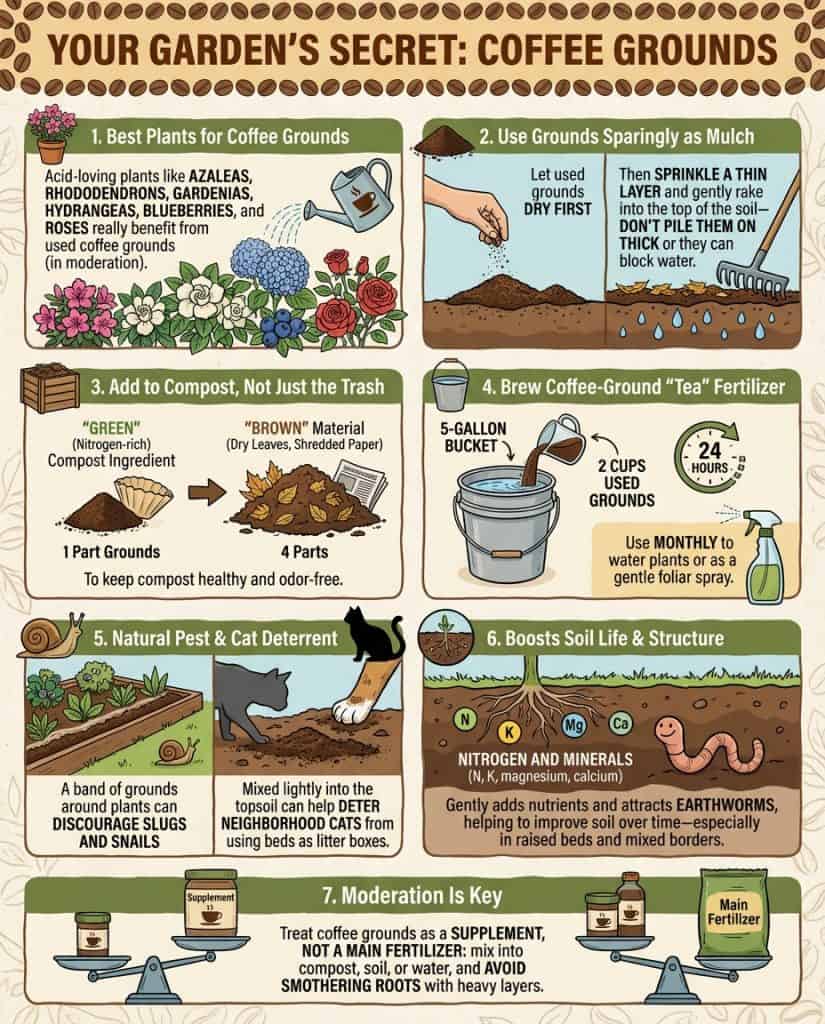
That daily coffee habit of yours? It’s the secret weapon your garden has been desperately waiting for. Before you dump those used grounds in the trash, know this: what looks like waste to you is pure gold for certain plants.
I was shocked to discover that those humble brown leftovers from your morning brew pack nearly 2% nitrogen and could be the game-changer your garden needs this season!
These 12 Plants Are BEGGING For Your Coffee Grounds
Forget what you’ve heard about coffee grounds being too acidic. While pre-brewed coffee is quite acidic, used grounds are much gentler but still perfect for acid-loving plants.
Think of them as plant espresso shots, concentrated bursts of nutrients that transform struggling plants into vibrant showstoppers.
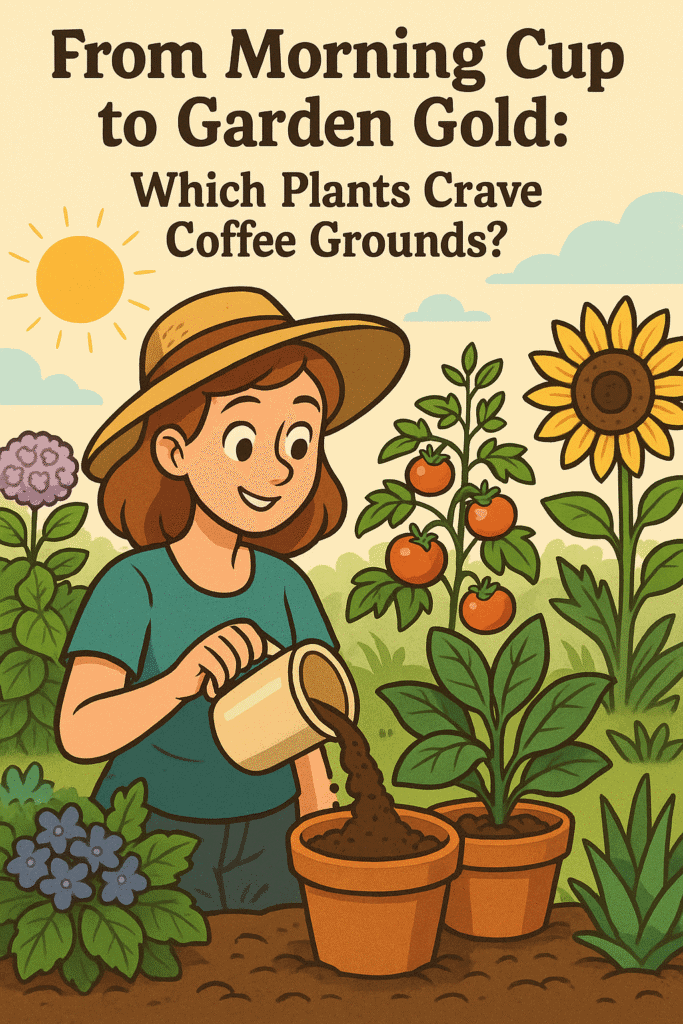
These plant varieties will practically do a happy dance when you feed them coffee grounds:
- Rhododendrons (these flowering divas thrive with that coffee kick)
- Gardenia varieties (all of them love that coffee goodness)
- Azaleas (watch them flourish with regular coffee treatments)
- Hydrangeas (for spectacular blooms)
- Blueberries (sweeter berries from bitter grounds; talk about irony!)
- Roses (the queens of the garden appreciate this royal treatment)
- Lily of the Valley
- Carrots (for sweeter, more vibrant roots)
- Radishes
Pro tip: While these plants love coffee grounds, they don’t want to drown in them. As with coffee, moderation is key.
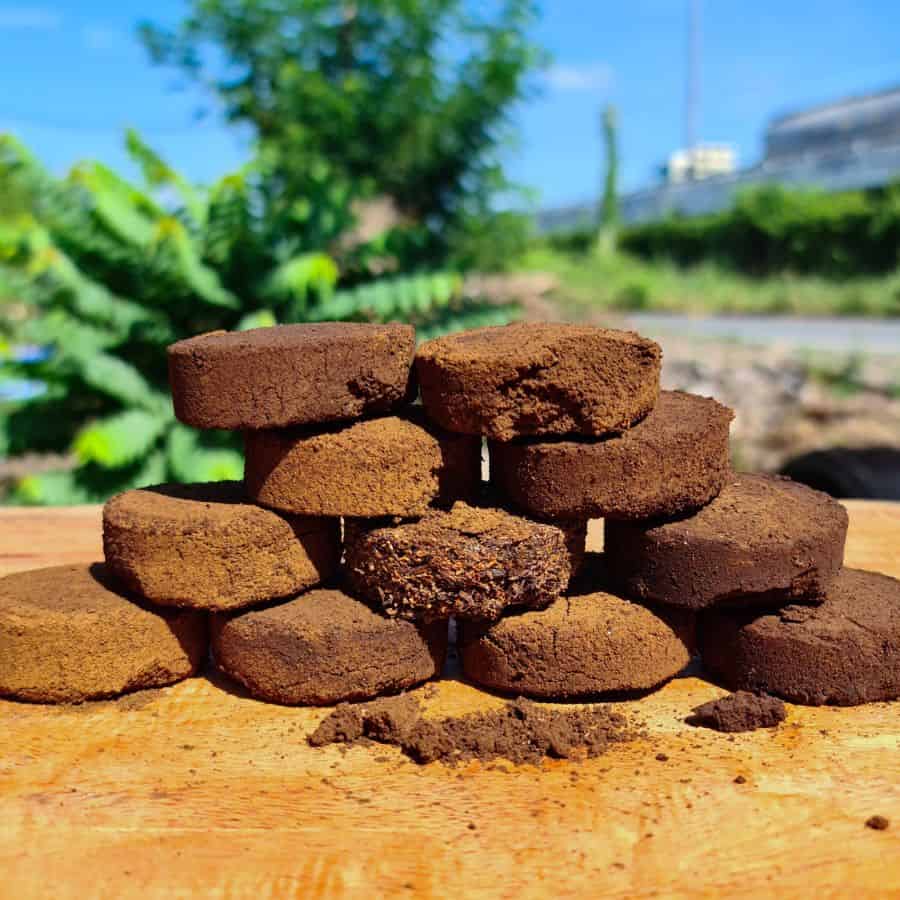
4 Brilliant Ways to Use Coffee Grounds (Your Plants Will Thank You)
1. Supercharge Your Compost (The Brewing Method)
Your compost bin is like a plant-food factory, and coffee grounds are premium feedstock.
Despite their brown appearance, coffee grounds are actually considered “green” compost material because they’re nitrogen-rich.
Here’s the hack most plant experts won’t tell you: you can toss the entire filter with grounds right into your bin!
But there’s a crucial balance to maintain: for every part of coffee grounds, add about four parts of “brown” materials like dry leaves or newspaper.
Without this balance, your compost might start smelling like that forgotten gym bag in your trunk. Yikes!
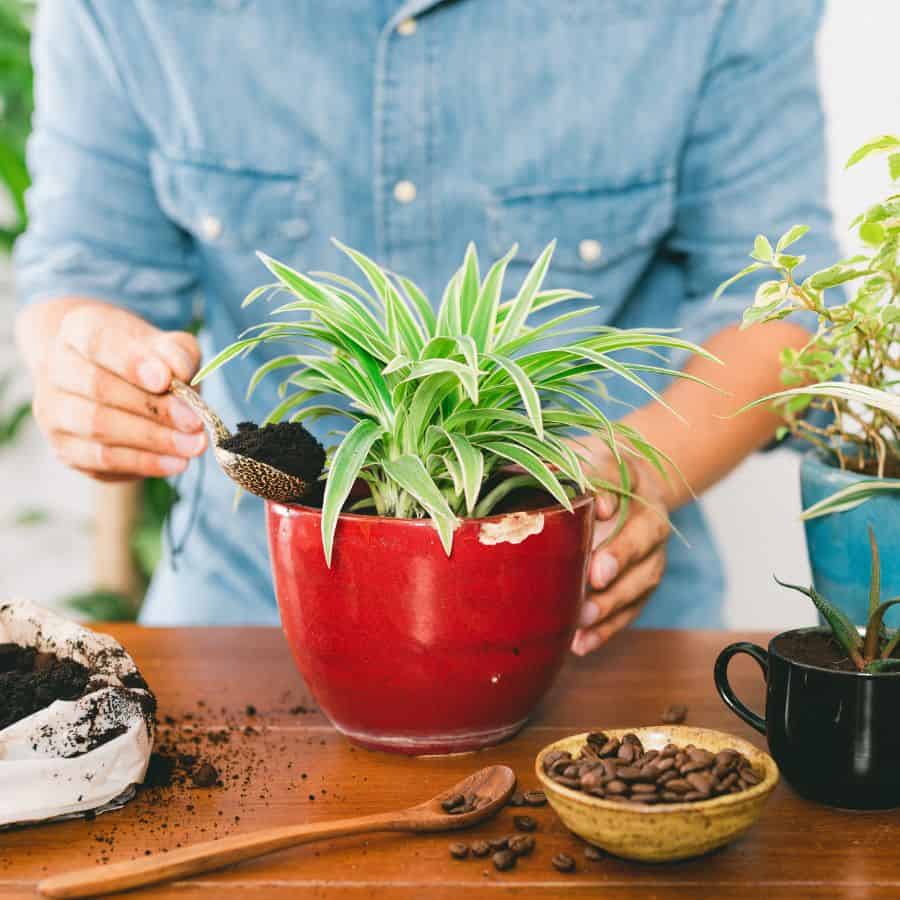
2. Magic Mulch (The Sprinkle Method)
Coffee grounds can transform your soil when used as mulch, but there’s a technique to it:
- Let your grounds dry completely (wet grounds can repel water; not what we want!)
- Sprinkle a thin layer over the soil (think dusting, not dumping)
- Gently rake into the surface
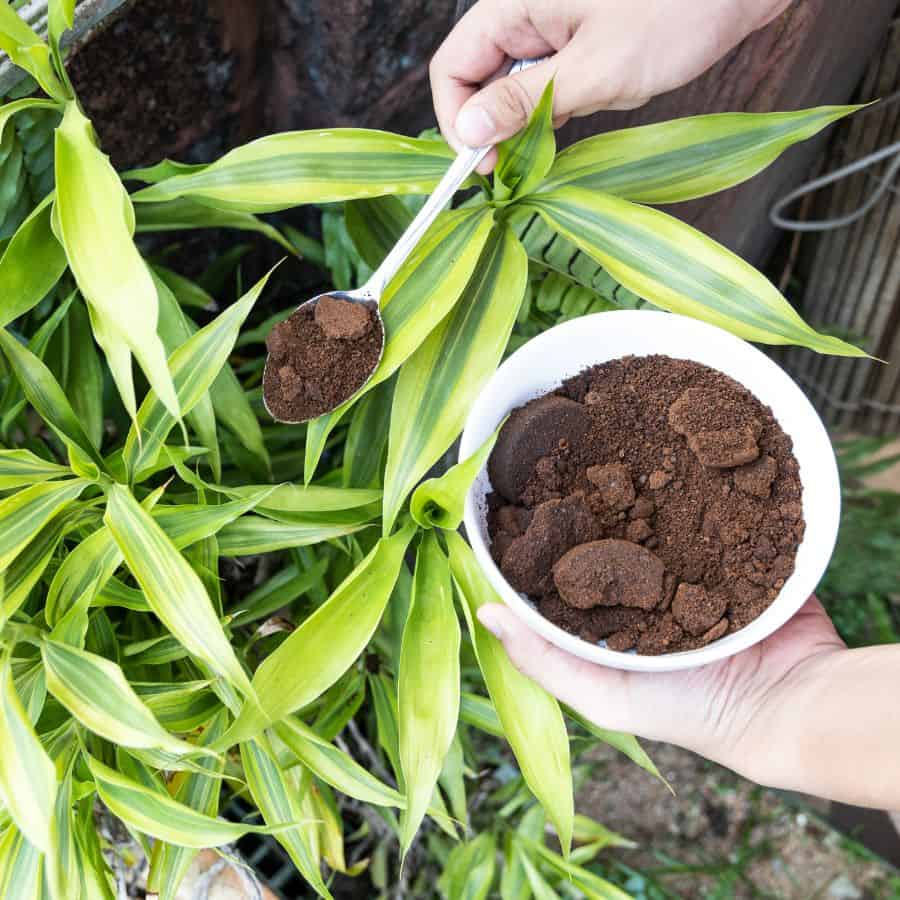
This thin coffee blanket helps retain moisture and can discourage weeds from crashing your garden party.
Even better? Local earthworms will treat your coffee-enriched soil like a five-star buffet, improving soil structure as they feast.
3. Liquid Gold Fertilizer (The Steeping Method)
The difference between amateur and pro plant parents is simply knowing how to make coffee-ground tea. And no, your plants won’t stay up all night after drinking it!
Here’s my fail-proof recipe:
- Add 2 cups of used grounds to a 5-gallon bucket
- Fill with water
- Let steep for 24 hours (like a cold brew for your plants)
- Use this miraculous brew monthly for watering or as a foliar spray
Your plants will soak up these nutrients faster than a coffee-deprived parent grabs their morning cup!
4. Natural Pest Barrier (The Defense Method)
Those same grounds that make your morning delightful can make a slug’s day miserable.
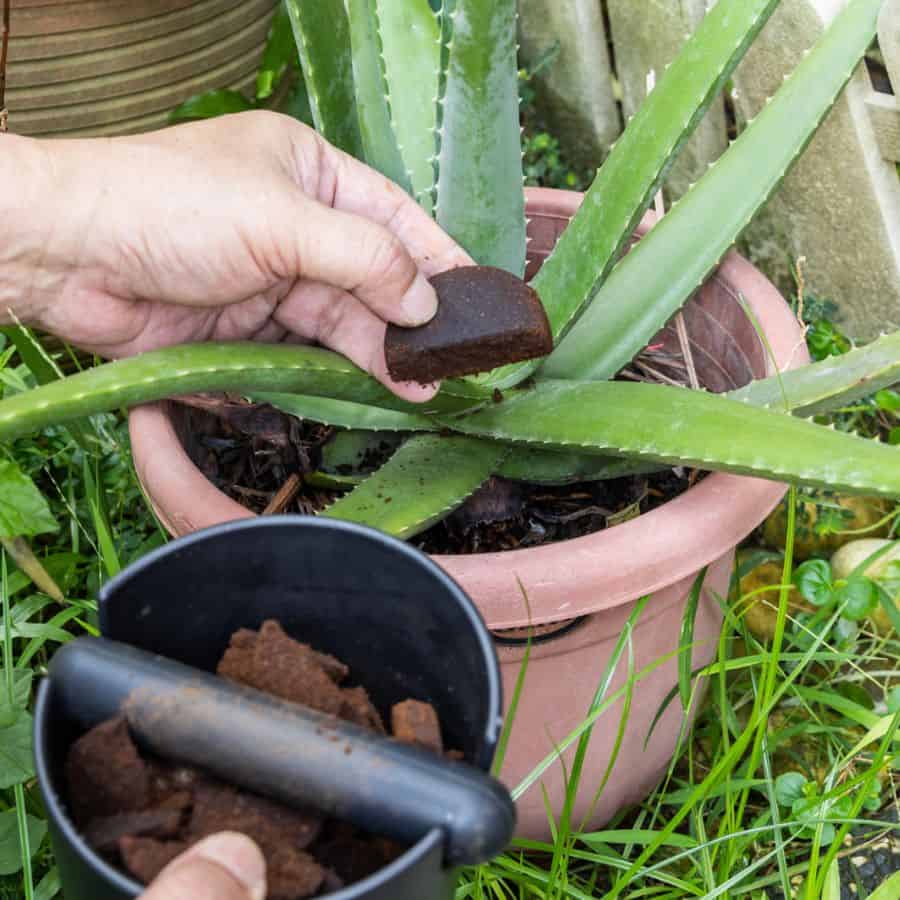
A thick layer of coffee grounds creates a protective barrier around vulnerable plants. Slugs and snails will avoid crossing this gritty fortress like it’s covered in hot lava.
And here’s a revelation for anyone with neighborhood cats treating your garden like their personal litter box:
Coffee grounds tilled into your topsoil will send those feline intruders looking elsewhere. Whether it’s the smell or texture, cats turn their whiskers up at coffee-infused soil.
The Science Behind The Magic
Your used coffee grounds aren’t just random waste. They’re packed with garden-boosting nutrients:
- Nitrogen (nearly 2%): Essential for lush, green growth
- Potassium: Helps plants develop strong roots and resist disease
- Magnesium: Critical for photosynthesis
- Calcium: Builds strong cell walls
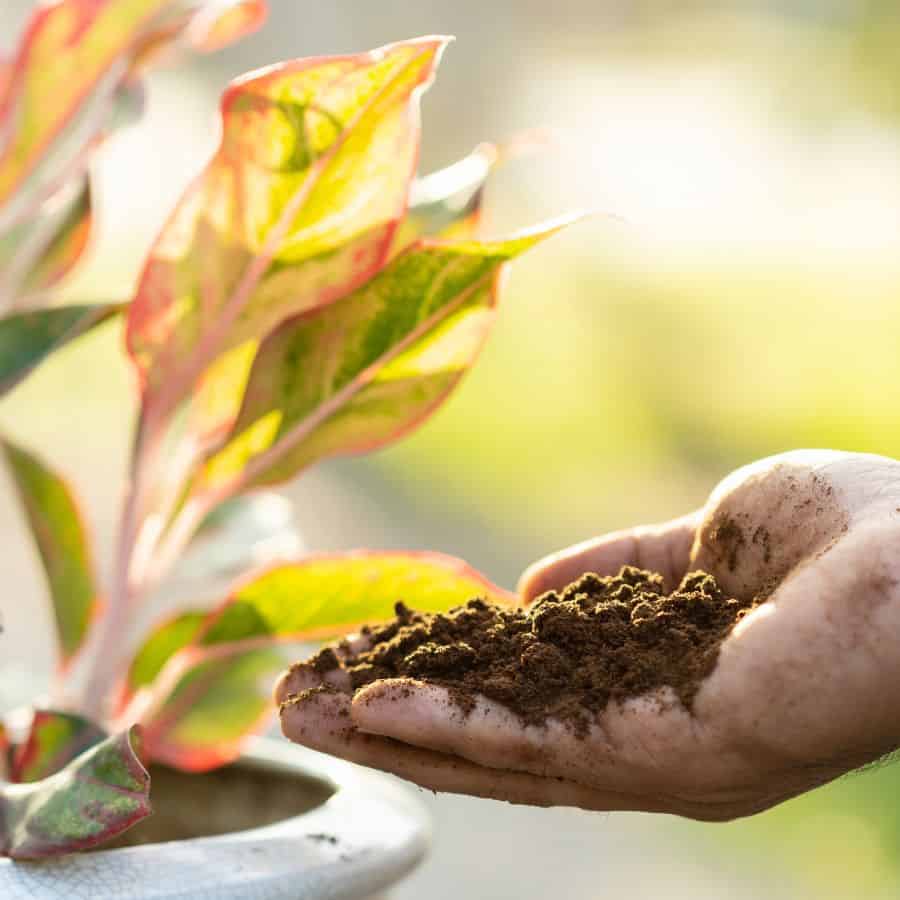
Think of coffee grounds as a multivitamin for your garden, not a miracle cure, but a powerful supplement that supports overall plant health and vitality.
So next time you brew a pot, remember: you’re not just making coffee for yourself. You’re preparing a feast for your garden. Those grounds aren’t trash; they begin your garden’s spectacular transformation!